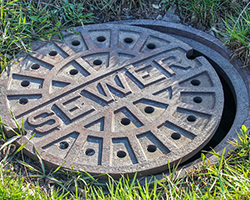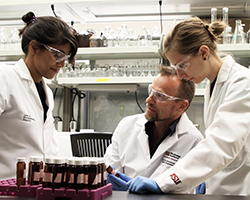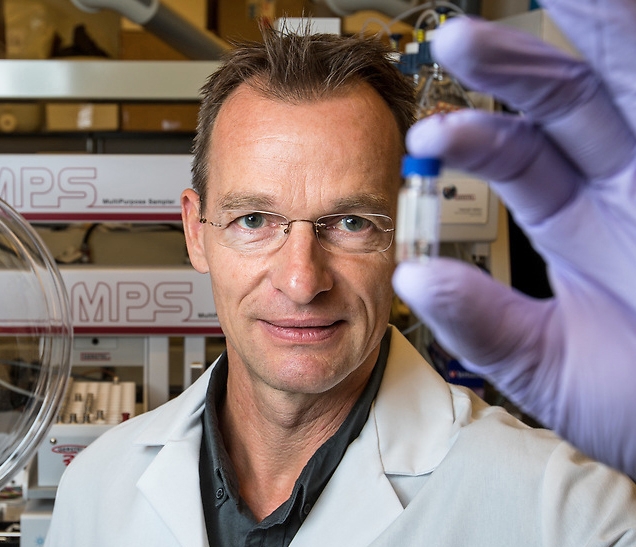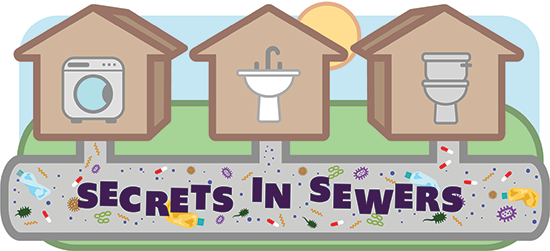show/hide words to know
Career Path for Rolf Halden
Fast Facts:
- Number of years in school: 22
- Favorite class / subject: Physical Education
- Hardest class / subject: Math
- First Job: Postdoctoral researcher
- Dream job as a kid: Traveler
- One word you would use to describe your current job: Possibilities!

Halden's journey from a love of water led him to an interesting career studying sewer water and more. Image by Greg Reese.
If you told a young Rolf Halden that he would find happiness in the sewers, he may not have believed you. What started as a love for water when he was young led him to walk along rivers and oceans whenever he could as an adult. This interest would eventually lead him to study some of the dirtiest water out there—wastewater. There were many steps on his journey toward tracking human health in the sewers of towns and cities.
For college, Halden attended the University of Brunswick, in Germany. Small lakes and ponds dotted the city and a river wound behind the university. There, he could study and explore the local waterways. At first, he couldn’t quite decide what he wanted to do, but he started taking biology classes. It turned out that life is really vast; there are so many different things to study in the life sciences. But Halden settled on microbes, a tiny world that thrived in the water he loved. After he graduated he decided to explore another field of interest: engineering.
Halden packed up his life and flew to the land of 10,000 lakes—Minnesota. Along the Mississippi River, Halden pursued a doctorate in engineering so he could study systems. Small parts, like molecules in a cell or animals in a forest work together as a system. In biology, Halden studied the pieces of a living system. In engineering, he would be able to study how those pieces of a living system work together.

Halden has always enjoyed teaching, whether in the classroom or with students in lab. Image care of Rolf Halden.
After Halden graduated, he relocated again. He first worked in a lab in California. Then he moved to Baltimore, Maryland, and put his knowledge to a new use: teaching health science. His background in microbiology helped him teach human health. And his background in engineering helped him teach about how the whole body works as one system. This is where Halden was able to see in detail how things outside us can affect our health. He also learned that microbes and tiny particles can tell us so much about the health of a population.
Halden enjoyed teaching, but he wanted to expand his focus. The opportunity to do everything he was interested in landed him in what might seem like the least likely of places for a water lover: Arizona. In Phoenix he is able to research microbes and other tiny particles in sewers, so he can help people in towns and cities be healthier. He also has the opportunity to educate students and work with them in his lab. He loves advising students and being in the classroom, and he learns just as much from his students as they learn from him. They work together over microscopes and water samples looking for ways to improve the health of their communities.
Secrets in Sewers was created in collaboration with The Biodesign Institute at ASU.
Image of Rolf Halden in his lab by ASU.
View Citation

What if you took samples of the water from your house, your yard, and from your sewer system? What information do you think you could find in those samples? These questions and more are what drive Rolf Halden to search for secrets in the sewer and other water sources.
Be Part of
Ask A Biologist
By volunteering, or simply sending us feedback on the site. Scientists, teachers, writers, illustrators, and translators are all important to the program. If you are interested in helping with the website we have a Volunteers page to get the process started.
Discover exciting careers in science and beyond by exploring fun virtual Worktours(link is external) of real companies.







